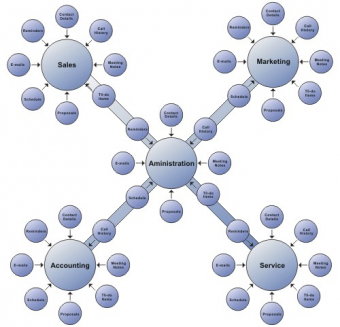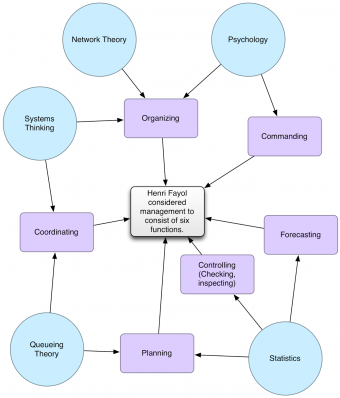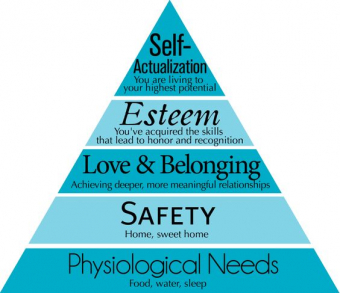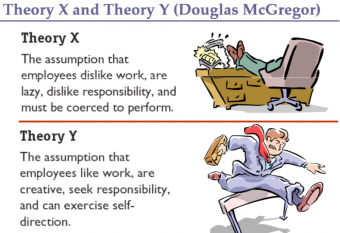
Consulting - Quality
Difference makes the DIFFERENCE
Content - List
Thanks to Amazon Polly and audacity
Main article
His famous quote: "if I see a murderous fellow, sharpening his knife cleverly, I can borrow his method of sharpening knife without borrowing his style of committing murder" emphasises on principles.
This followed by thinkers like Henri Fayol and Frederick Taylor, who formulated principles on subsequent observations and experiements and formulated Scientific Principles of Management. Insipte if many oppositions to these principles, employees were at profit and enjoyed considerable leverage.
Criticising these principles, came Human Behavioural thinkers, who emphasied on people component of an organisation than on the principles that govern them. They firmly asserted that human beings are not machines and cannot be monitored as machines would be controlled.
Max Weber, started his journey with the question: "What if Authority fails?" or "What if authority is questioned?". He formulated the sources of authority and why people respect authority. Bureaucracy stands synonymous to Max Weber. He prefered legal type of authority as it is rational in divulging its authority, equally across all sections of the society, barring none to their hierarchy. He is most widely criticised and equally accepted thinkers.
Mary Parker Follet, distinguishingly stands out of all these thinkers and formed human organisations, she did social work towards woman, children and slum dwellers. She is grandly called as Political Scientist of international reputation. Her primary attention was towards addressing social problems. She introduced the concept of Constructive Conflict and other such principles moving around human behaviour. She defines authority as vested power. Among others are Elton Mayo, Chester Bernard, Herbert Simon.
With Simon, the focus, shifted to situations and Rational Decission Making. He called all these principles as proverbs, which contradict one another. For example Don't judge a book by its cover, Clothes make a man, Birds of same feathers flock together, Opposites attract.
Based on these principles, and ignoring man as a single entity, as with Behavioural thinkers, came Organisational thinkers, who put man as a collective agent in an organisation. The concept of System came into existence, comparing it to a machine, where just like all the parts of the machine whould be in synchronisation with each other, so should all the members of an organisation. This gave rise to some thinkers like Abraham Maslow, who is famous for his Hierarchy of needs. The go under the emblem of Motivational Theories.
First of all, I admit that, it would be foolish to put everything of administration in single article, however, I would like to do my best to introduce 'administration' for a primary understanding. The first usage of the word "administration" dates back to 14th Century.
Synonymous words include:- rule, authority, governance, jurisdiction, regime etc... limited to Governing Bodies and the methods of functionality for office administrative purpose, later on, extended to People involved in Administration, and hence called PUBLIC Administration.
Administration is as old as HUMAN History
The work "Public" refers to "People", as in, government employee is referred as Public Servant which means People Servant, or simple to say, the one who is designated to serve people, whether they serve or not is different story, now, grown to the status of noble thought.
Primarily looking into the dictionary meaning of administration, Administration is a noun. This has various connotations, but in the current context, it is:
- activities that relate to running a company, or organisation,
- a group of people who manage the way a company function.
- Simply to put it as "performance of executive duties".
In layman terms - the principles that guide, as to How an organisation can be run effectively and efficiently?
ADMINISTRATIVE THINKERS
HOW THIS ALL BEGAN...?


There are various methods/theories that were proposed by various thinkers of various ages, of which 19th century played a key role. These methods became a means to achieve organisational objectives. Of all the available theories, which one suits the best depends on the people that are being addressed. One theory does not meet all situations, as situations are as good in number as human beings. One interesting and underlying factor is that, most of these thinkers are from Organised and Highly disciplined sectors like Military Organisations etc. Also, my personal observation is that, their field of study and their area of expertise greatly influenced the principles proposed by these thinkers.
All the theories or methods proposed by various thinkers, are classified as Classical Thinkers, Behavioural Thinkers and Organisational Thinkers.They are mostly built one on the other, hence none can be ignored...

For reader's reference: Some of the Classical Thinkers are: Woodrow Wilson, Henri Fayol, Frederick Taylor, Max Weber and others...
Behavioural thinkers include: Mary Parker Follet, Elton Mayo, Chester Bernard, Herbert Simon and others...
Organistional Thinkers include: Abraham Maslow, Douglas McGregor, Chris Argiris, F.W.Riggs and others...
In Indian context, we can never forget Ardha Sasthra from Kautilya. As rightly said and emphasised by Woodrow Wilson, there is demanding need for strong principles for proper administration.

Mc.Gregor came up with Theory X and Theory Y, which classifies organisational system. Next comes, Chris Argyris, with a Psychology background, differenciates Basic incongruency between the needs of a mature person and requirements of formal organisation and emphasises on Organisational Change. He could sharpen various faces of human relations and their particiption in organisational goals.

One cannot strictly call, which of these theorists are correct as one is inherent in the other, but we can understand and appreciate the thought process behind these theories, the criticism with one over the other where all the reasons seems good and equally, the otherwise. In the subsequent articles, I would like to address these thinkers seperately for a little more detailed view..
Conclusion: It is clear that the thought process is not spontaneous or a direct jump but a sequential evolution from Woodrow Wilson. All these are built upon the former., hence we cannot either exclude one or include another..
I strongly recommend the book "Administrative Thinkers" by Prasad and Prasad, Sterling Publications, Low Price Edition. This is one of the prescribed books for
Indian Civil Service Examinations, for those who, choose
Public Administration as one of their optionals.